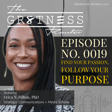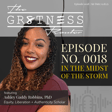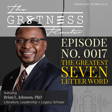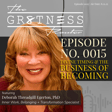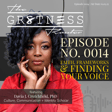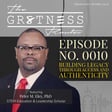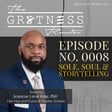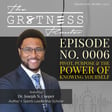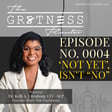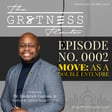
Ep. 0012 | Ask The Question Anyway
What happens when the systems you’re trained to trust… start to show their cracks?
In this episode, Zena C. is joined by Civil Rights Attorney and Community Advocacy Educator Jonathan Barry-Blocker, JD, for a powerful conversation on identity, justice, and protecting your peace while doing the work.
From courtroom realities to community wisdom, Jonathan breaks down what it means to advocate with integrity—and still be whole. He shares how growing up in a deeply rooted Black family, navigating predominantly white institutions, and surviving the mental toll of overperformance shaped his perspective on boundaries, law, and liberation.
This episode is for anyone carrying the weight of excellence, service, or expectation… and learning how to set it down without letting go of who they are.
🎧 Stream Episode 0012 on all major platforms
Release Date: 5/22/25
